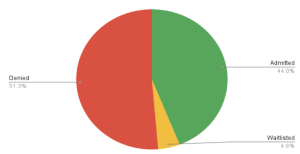U.S. to withdraw from the Intermediate-Range Nuclear Forces Treaty
February 11, 2019
Russia announces that it would suspend its involvement in the Intermediate-Range Nuclear Forces Treaty after the United States expressed its plans to abandon the treaty.
The Intermediate-Range Nuclear Forces Treaty (INF) is a Cold-War era nuclear treaty which bans U.S. and Russian land-based missiles with a range between 300 and 3,400 miles. The treaty was brokered in 1987 by U.S. President Ronald Reagan and Soviet President Mikhail Gorbachev.
Russian President Vladimir Putin said on Saturday that his country would suspend its involvement in the Intermediate-Range Nuclear Forces Treaty and accused Washington of breaching the agreement.
“Our American partners have announced the suspension of their participation in the treaty, so we will suspend as well,” President Putin said in a televised meeting with his defense and foreign ministers. He also ordered the officials not to initiate any talks on disarmament.
“We will wait until our partners are ready to carry out an equal, substantial dialogue with us on this very important topic—for us, for our partners, and for the whole world,” President. Putin said.
The Kremlin’s decision was a response to Friday’s announcement by Secretary of State Mike Pompeo that the U.S. would withdraw from the treaty in six months if Moscow doesn’t destroy missile systems that violate the treaty.
The U.S. accused Russia of violating the treaty several times before. The disagreement started in 2014, when the Obama administration first accused Russia of related transgressions, and it escalated in 2016.
Russia has claimed the breadown of the INF treaty is part of a long-term U.S. strategy to amass nuclear weapons and gain dominance in this sphere as part of a refashioned new world order.
After President. Putin’s response, a State Department spokesman reiterated the U.S. position. “Russia is undermining European security with its INF-violating missile that was developed specifically to destroy key European military and economic targets and coerce NATO governments,” the spokesman said.
President Putin made it clear that Russia would follow the U.S. in pursuing research and development of intermediate-range missiles, which he said it wouldn’t deploy unless the U.S. did so. According to President Putin, the development of new weapons shouldn’t pull Russia into an expensive arms race.
In December, President Putin said that in case the deal collapses, U.S. missile sites within striking distance of Russia would be the targets of subsequent military exchange. Foreign Minister Sergei Lavrov said Russia had offered the U.S. “unprecedented measures of transparency” as part of the agreement. During Saturday’s meeting, Mr. Lavrov said the U.S. decision to quit the pact would first and foremost cause concern for Europe.
U.S allies in NATO aggress that Russia had violated the treaty; however, they have different views when it comes to how to respond. German Foreign Minister Heiko Maas said that international talks on disarmament were needed to look at rules for new weapons systems.




